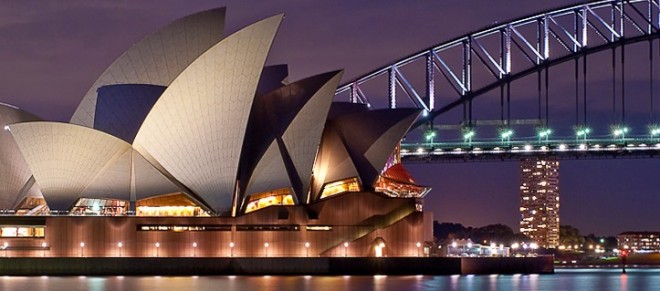A small country that made the right choices
Note that the partisan stripe of Australia’s governments has been just about the opposite of Canada’s for 15 years
Share

Casting about for news and commentary to improve my understanding of Kevin Rudd’s turnabout-may-or-may-not-be-fair-play-but-it’s-the-game-I’m-playing attack on Australian Prime Minister Julia Gillard, who putsched him out of the job less than two years ago, I was amused to learn about this new book, released today, apparently, and written by the prominent political journalist George Megalogenis. It’s called The Australian Moment, and like so much down there, its thesis will be oddly familiar to Canadians:
“There’s no better place to be during economic turbulence than Australia. Brilliant in a bust, we’ve learnt to use our brains in a boom. Although the Great Recession continues to rumble around the globe, we successfully negotiated the Asian financial crisis, the dotcom tech wreck and the GFC. Despite a lingering inability to acknowledge our achievements at home, the rest of the world now asks: How did we get it right?
“This is the page-turning story of our nation’s remarkable transformation since the ’70s. One of our most respected journalists, George Megalogenis, traces the key economic reforms and brilliant moments of collective instinct that opened our society to the immigration of capital, ideas and people to just the right degree.”
Here’s a radio conversation with the author.
Note that the partisan stripe of the country’s governments has been just about the opposite of Canada’s for 15 years. They had a decade of conservatism under John Howard, which ended in 2007, followed since then by carbon-taxing Labor PMs. We did it the other way. The results have not been dissimilar. This would tend to confirm the suspicion that the party stripe of national governments isn’t as important as political obsessives like to think it is. The broader story, of relative economic success in Australia, confirms something else: That when Canadian leaders compare our results with the rest of the G7, it’s because the G7 these days sets a low bar. Most of the countries that have been doing really well aren’t in the G7.